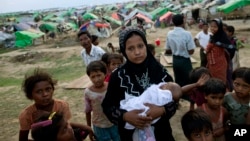Burma has made extraordinary progress in the last year, including holding successful nationwide parliamentary elections in November 2015 and the formation in March 2016 of a democratically elected, civilian-led government. However, significant problems remain. Chief among these are restrictions on freedoms of speech, association, and assembly; human rights violations in ethnic minority areas; and restrictions on members of the Rohingya population. The new government has already demonstrated its commitment to addressing these issues, either through action or public statements.
After Aung San Suu Kyi publicly stated April 7 the new government would try to release political prisoners, a judge in Tharrawaddy Township Court on April 8 closed the cases and ordered free 69 students and activists held on politically related charges. President Htin Kyaw granted amnesty to an additional 63 political prisoners, including five journalists, on April 17.
Last year, there was a significant decrease in reports of violent abuses by the military of noncombatant and civilian populations in conflict-torn, ethnic minority border areas, and the previous government signed a Nationwide Ceasefire Agreement with eight ethnic armed groups on October 15, 2015. However, fighting continued between the military and ethnic armed groups in Kachin, Shan, Karen, and Rakhine states.
The Rohingya, a stateless ethnic minority primarily residing in Rakhine State, were singled out for special restrictions. There were prohibitions on movement within the country. The Rohingya were required to fill out forms for permission to stay overnight in another village and to register on the guest list with the village. The previous government did make efforts to quietly resettle an estimated 25,000 Rohingya to their villages of origin. The new government also has said Rakhine State issues will be part of the newly formed National Peace and Reconciliation Center’s mandate.
The United States is committed to advancing universal rights, building partnerships that will move us forward, and helping every person live up to their potential. On human rights, every country, including our own, has room to improve. And in cases like Burma, we are committed to working with the new government and civil society to support reforms that contribute to Burma’s historic transition.
“In Burma, an elected civilian government has begun to free political prisoners,” said Tom Malinowski, Assistant Secretary of State for Democracy, Human Rights, and Labor. “We will do everything we can to support it in tackling reform of the country’s laws and constitution, seeking peace with ethnic minorities, and addressing the human rights and humanitarian challenges of the Rakhine State.”

















